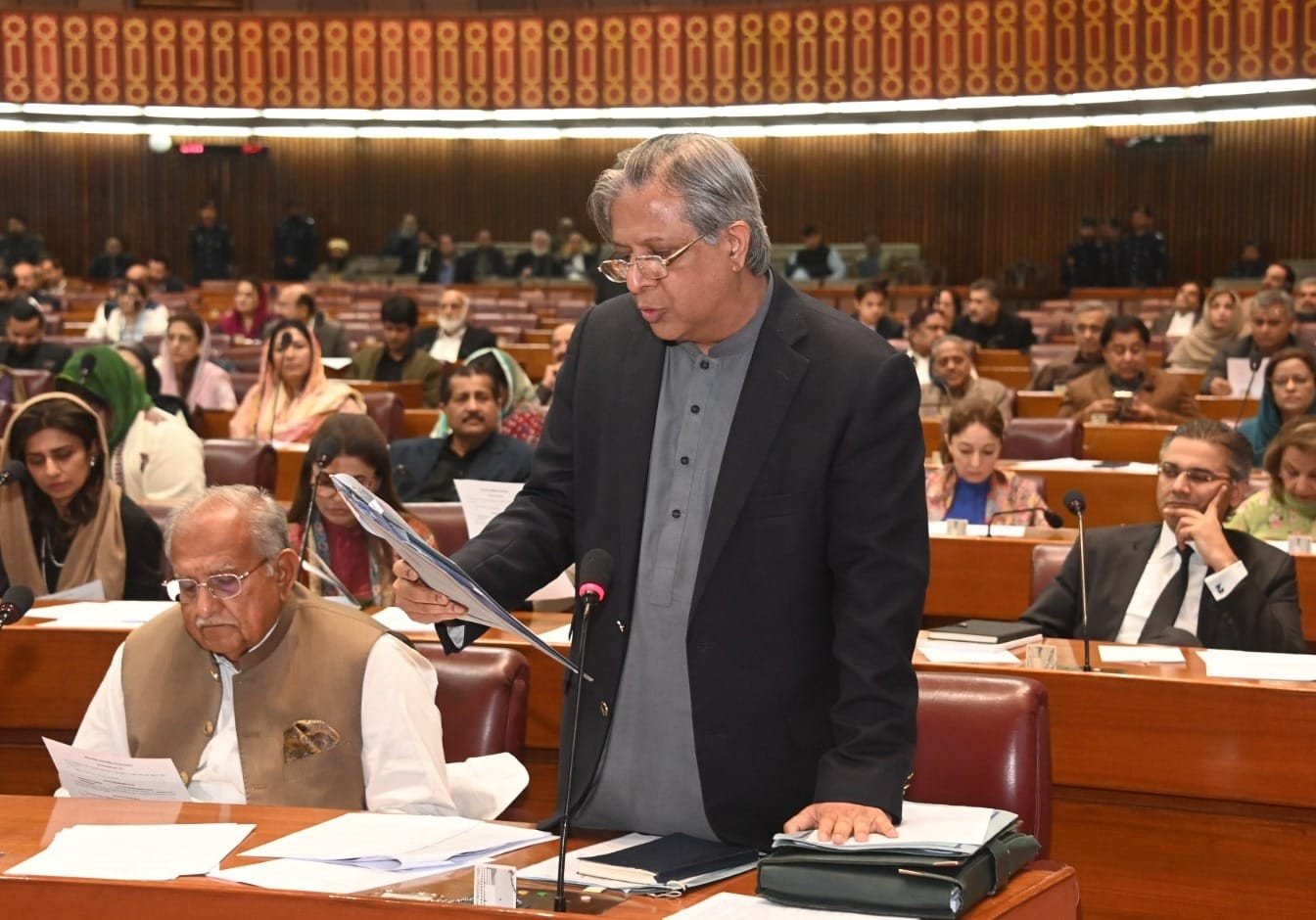ISLAMABAD: The National Assembly’s proceedings on Monday turned tumultuous as the government pushed through four contentious bills amid vociferous protests from the opposition, which accused the ruling coalition of bypassing democratic norms and stifling debate.
The sitting witnessed a heated atmosphere, with Energy Minister Awais Leghari facing severe criticism from both treasury and opposition members over ongoing power outages and loadshedding. Leghari conceded that power companies and their officials had been inefficient in addressing the issue, further fueling the ire of the assembly members.
At the beginning of the session, opposition members from the Sunni Ittehad Council (SIC) staged a token walkout in protest against the Punjab police, who allegedly prevented opposition leader Omar Ayub Khan and several MNAs from entering the premises of an anti-terrorism court (ATC) in Sargodha, leading to the cancellation of Khan’s bail.
Amidst the uproar, opposition members gathered in front of the speaker’s dais, shouting slogans and tearing apart copies of the bills and the agenda. Deputy Speaker Ghulam Mustafa Shah allowed Law Minister Azam Nazeer Tarar to present motions for the passage of four bills, which had been approved by incomplete and ad hoc standing committees formed by the speaker.
The house passed the bills after suspending the rules, which typically allow members two days to suggest amendments. The controversial bills included the Pakistan Broadcasting Corporation (Amendment) Bill, 2023, the Pakistan National Shipping Corporation (Amendment) Bill, 2023, the Pakistan Postal Services Management Board (Amendment) Bill, 2023, and the National Highway Authority (Amendment) Bill, 2023. These bills had already been promulgated by the caretaker government through ordinances.
SIC Chief Whip Aamir Dogar vehemently protested what he termed as the bulldozing of legislation, calling both the current government and the assembly “fake.”
Power Loadshedding Controversy
Energy Minister Awais Leghari came under fire over the persistent issue of loadshedding in various regions during the extreme summer heat. Lawmakers criticized the minister for seeking provincial governments’ support in detecting power theft rather than taking direct action.
“The system has enough generation and transmission capacity to meet the electricity demand, and we are ready to provide 24-hour electricity to consumers. However, this is not possible without controlling line losses and power theft,” stated Leghari, adding that the country could not afford to increase the circular debt further.
The minister acknowledged that distribution companies, with provincial government assistance, must change their course and control losses, or loadshedding would persist on high-loss feeders. He admitted that power company officials were complicit in power theft and overbilling consumers, describing XENs and SDOs as the ‘biggest bureaucrats’ lacking customer care.
Leghari requested a full-day session dedicated to debating the issue, promising to come prepared with experts to address all points raised by the members.
Opposition Walkout
The SIC members’ walkout at the session’s outset was led by former speaker Asad Qaiser, protesting against the Punjab police’s alleged obstruction of opposition leader Omar Ayub Khan and other MNAs from heading to the ATC in Sargodha.
Khan later recounted the incident in the house, announcing plans to move a privilege motion against the Punjab police.
As the assembly adjourned, the tension remained palpable, with unresolved issues and mounting dissatisfaction among members pointing to more contentious sessions ahead.
